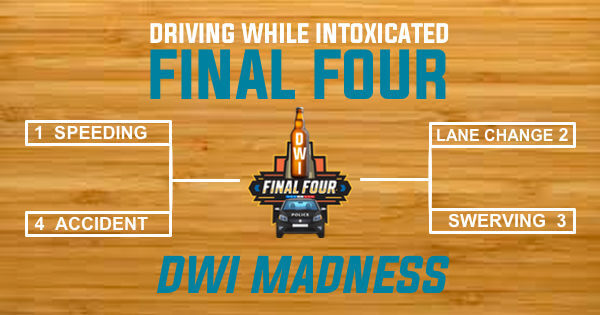Rejecting the “Science” of Retrograde Extrapolation in Texas DWI Cases
 Most people are familiar with the blood alcohol concentration (BAC) level for DWI: 0.08. Most people, however, are not familiar with “retrograde extrapolation” and the role it plays in determining BAC. A Fort Worth Criminal Defense Attorney will understand the importance of retrograde extrapolation in a DWI case as evidenced by a recent decision from the Texas Fourteenth Court of Appeals.
Most people are familiar with the blood alcohol concentration (BAC) level for DWI: 0.08. Most people, however, are not familiar with “retrograde extrapolation” and the role it plays in determining BAC. A Fort Worth Criminal Defense Attorney will understand the importance of retrograde extrapolation in a DWI case as evidenced by a recent decision from the Texas Fourteenth Court of Appeals.
VELIZ v. STATE (14th Court of Appeals, Houston, 2015)
FACTS: Houston Police Officer Joel Quezada arrested Luis Veliz shortly after midnight. Veliz admitted to having two beers to drink. After Officer Quezada obtained a search warrant, Veliz’s blood was drawn at 3:32 a.m. Veliz’s BAC was .081.
At Veliz’s trial, a criminalist from the police crime laboratory testified that, based on the .081 BAC at 3:32 a.m., Veliz’s BAC at the time of the stop would have been between 0.095 and 0.124. The jury found Veliz guilty of DWI.
On appeal, Veliz argued the criminalist’s testimony regarding his BAC was not admissible. This is where retrograde extrapolation became important.
The issue in a DWI case is the BAC at the time the defendant was driving. The blood sample is often obtained hours after the arrest. The process for estimating a BAC at the time of arrest based on a blood sample drawn later is known as retrograde extrapolation: a BAC at one point in time (3:32 a.m. for Veliz) is used to estimate the BAC at a time in the past (12:05 a.m. for Veliz).
Mata Factors Must Be Proven In Order to Apply Retrograde Extrapolation in Texas DWI Cases
Texas case law allows retrograde extrapolation testimony if the expert witness understands how to apply and how to clearly explain the process. In assessing such testimony, courts consider the time between the offense and the blood test, how many tests are administered and at what intervals, and any characteristics of the individual that were considered, including weight, gender, drinking pattern, tolerance for alcohol, amount of alcohol consumed, type of alcohol consumed, time of the last drink and what food was consumed. These are known as the Mata factors, based on the case in which they were first applied.
The Mata factors are important because different individuals’ bodies absorb and eliminate alcohol at different rates. And calculating a BAC retroactively requires knowing whether the individual was in the absorption phase (increasing BAC) or in the elimination phase (declining BAC). While not every factor must be known, Texas case law requires that if only one test is performed some time after the alleged offense, retrograde extrapolation is reliable only if many of the factors are considered.
The Court found the criminalist did not know many of Veliz’s relevant characteristics–his drinking pattern, the time of his first or last drink, or whether he had eaten recently. The criminalist testified she did not know the Mata factors for retrograde extrapolation. She also testified–incorrectly–that all she needed to perform a retrograde extrapolation was the time of the stop and the time of the blood draw. Because the criminalist did not understand and could not explain the subtleties of retrograde extrapolation, the court reversed the verdict and remanded for a new trial.
Some people believe refusing a blood test when arrested for DWI is a good strategy because any delay will result in a lower (and unreliable) BAC. However, a Fort Worth Criminal Defense Attorney will advise that a BAC based on blood drawn several hours after the arrest can be used to calculate a BAC at the time of arrest that will be admissible in court if the retrograde extrapolation appropriately considers some or all of the Mata factors.
On the other hand, if an individual is on trial for DWI, his or her Fort Worth Criminal Defense Attorney should carefully question any BAC evidence, particularly if it is based on a blood draw that occurred some time after the arrest. Retrograde extrapolation is not an exact science, and a jury will be allowed to hear testimony only if the extrapolation is appropriately performed and explained.
Contact the Experienced Fort Worth DWI Attorneys at Barnett Howard & Williams PLLC. (817) 993-9249
Our Tarrant County DWI attorneys are experienced in the science behind DWI and retrograde extrapolation for determining BAC. If you have been arrested for DWI, please contact us today for a FREE consultation of your case. Call (817) 993-9249 and set up an office consultation in Fort Worth, Keller, or Grapevine.










